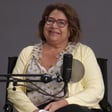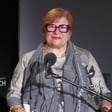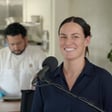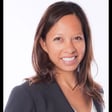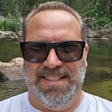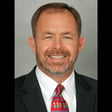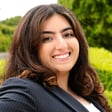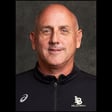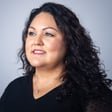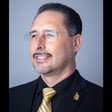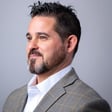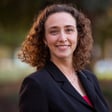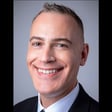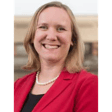Become a Creator today!Start creating today - Share your story with the world!
Start for free
00:00:00
00:00:01

CSULB's "City Manager"
Dan Montoya talks with Scott Apel ’91, ’09, who heads CSULB’s Division of Administration & Finance.
Transcript
Introduction of the Podcast and Guests
00:00:17
Speaker
Hello, I'm Dan Montoya, Vice President for University Relations and Development. Welcome to the 10th edition of At the Beach. This podcast produced by URD shares news of accomplishments, honors, personal stories, and ways listeners can become involved with Cal State Long Beach. Today, I have the honor to introduce my guest, Cal State Long Beach's Vice President of Administration and Finance, Mr. Scott Appel. Scott, who serves as the Beach's Chief Financial Officer, was born and raised in Long Beach. He has a double alum with a bachelor's degree in psychology and a master's in public administration.
Scott Appel's Career Journey and Current Role
00:00:55
Speaker
Scott spent most of his early career in management and human resources positions in private industry. In the early 2000s he went to work for Warner Music Group and moved his family to the east coast where he was the vice president of human resources for the company's U.S. operations. In 2005 he returned to the beach and the following year Scott was appointed associate vice president of human resources management In 2017, Scott was named Vice President and CFO. In his current role, Scott is responsible for the financial oversight of the entire institution.
00:01:31
Speaker
His direct responsibilities include financial management, budget, physical planning, and facilities management, human resources, the campus, police force, Title IX, DHR. He is the CEO o of the Research Foundation, Chairman of the Board of Beat Shops, and CFO of the 49er Foundation. That's amazing what he does. Ladies and gentlemen, please help me welcome Scott Appel. Thanks for being with us here today, Scott. Thank you, VP Montoya. And after hearing that introduction, I feel like I'm probably too big to be on this podcast.
00:02:08
Speaker
No, I mean, it's it amazing on everything that you carry in your portfolio. And I think that's why I wanted to have this conversation with you, because a lot of times, people don't understand what DAF is and what it really does. And so ah you know through this conversation, we want to shed light to that and learn a little bit more about that, you know and just about the university from your perspective, and then kind of get into a little bit about who you are and and your history with the beach. So let's start with the first question because you oversee so many vital operations area. I often hear people describe you as our city manager for this institution because it is like a small city. Help us better understand your job.
Managing Campus Operations Like a City
00:02:51
Speaker
And are you the guy that keeps things keeps things running?
00:02:56
Speaker
um Well, I'm sure the other vice presidents think that they're the person that keeps things running, but to be honest, Dan, yes, it is me. um And that's an app description. I think the CFO positions in the California State University are often referred to as city managers because the portfolios are rather similar. um We are like a little city. We have people that live here full-time. ah We have a health care provider. We feed everybody. We have our own police force. And we operate 24-7. The university never closes. It's always open in some respects um every day of the year. And um so um ah there's a lot of the same types of responsibilities um on a smaller scale than a big city.
00:03:40
Speaker
Yeah, and and I think one of the important points to consider is that even during COVID, right, I know you and your team were on campus most of that time. Yeah, we we did. we People think that the university shut down, but it actually didn't. we have Roughly 200 students that live here and don't have another home So they they can't leave and we can't leave them here by themselves. We have to take care of them and feed them But in addition to that there's just care and feeding that has to happen in order to heat and cool the university there have to be people here to manage the central plant and in order to
00:04:14
Speaker
have um ah police protection, the police station has to operate. We also operate our own communications center, so we have our own dispatchers. And the way cell phones work on campus is all the calls come to us. So um we're always here, we're always working. and We clean the water and heat the buildings, and we do all that stuff, clean the bathrooms, yeah borrow the debt service, build the buildings, we do all that crazy stuff. So let's let's let's dive a little deeper and and maybe you can break down your division a little bit more because I mean, how many how many are in your division and then how many departments are in your whole division? Because that's that's a big unit.
Budgeting and Construction Misconceptions
00:04:56
Speaker
Yeah, so it's always important for me to point out that our academic affairs division is the biggest because that's where the faculty sit and that's where the business of the university is done from a teaching perspective. We're the second largest. It varies based on the time of year, but we have roughly 800 employees. wow They work every day of the week. We are here all the time, as I've mentioned before. um But not just police. We have facilities folks here all the time and we have other folks that come. A lot of our custodial staff work in at night. So the most of the custodial staff come in from 12 to 8. And they um do their work when there's nobody around so that they can do their work and not have it messed up before they're done doing it. um We have a $35 million dollars operating budget, roughly. That doesn't include the capital construction program we have. That varies depending on how many projects. But that's probably another $45 to $60 million every year.
00:05:50
Speaker
in just projects. That work is not funded out of the university's operating fund. it's operating It's funded out of different money. And the reason I make that distinction is when we hit hard financial times like we're having right now, we're talking about budget cuts on the university, um ah people will still see construction, they'll get mad, and they'll call up or they'll email and say, how come you're doing construction when we're cutting budgets? And it's completely different money. It cannot be spent on employees. So that's why, and we still have to repair our facilities and we still have to to to build our facilities even when there's budget cuts.
00:06:25
Speaker
Yeah, and then there's also the HR side, and then there's also ah you know the campus police, and there's again, there's so many different areas that you oversee in DAF.
Connecting with University Staff
00:06:39
Speaker
Yeah, there is. And you know i am there's a lot of interesting facts, or I think they're interesting. um you know Every fall semester, we hire about 1,000 folks. A lot of them are lecturers, and the hiring process comes through us, and the benefits process comes through us. and things like that. um During the spring semester we hire about 800 folks and during the year we have three to four hundred recruitments just for staff and management. You can imagine the kind of transactions we're talking here. We have a group of um people that do nothing but keep are our PeopleSoft system, our personnel system, current because there's so much in and out in an organization our size.
00:07:17
Speaker
yeah it's i mean Again, it's phenomenal as as to all the aspects that ah you oversee and and you know you have a lot of great staff. you know No doubt, i I get to work with a lot of them on a regular basis. so you know In terms of of your your time here at the beach and and you focused on psychology and much of your early career was connected to human resources, How has that helped you in your position and how does it help you manage, you know, areas covering diverse range of positions and responsibilities? Well, when I started here, I like to think I was setting the trend because now our president is a psychologist and our VP of Student Affairs is also a psychologist. I wouldn't call myself a psychologist per se, but I do have a degree in psychology and, um you know, he One of the things I've often said to Jane Conley is every problem is a person problem regardless of what you think it is. If you think it's a financial problem or you think it's a facilities problem or you think it's a police problem, they're all just people problems, right? Because people are at the center of what we do and people
00:08:18
Speaker
um need help, and that's what we do most of our time. So um it's it's a big part of what we do every day, and and and thank you for ah referencing the folks. Obviously, I don't do any of the real work. I'm frankly just a good-looking figurehead. The people who work for me do all of the work. I have a wonderful group of managers and staff that that are here all the time making sure everyone's safe and making this a great place to learn and live, I think. That's great. So speaking of human resources, you're widely regarded as one of the most approachable people on campus. ah Regardless of whether an employee is a tradesperson, faculty member, staff, vendor, or fellow executive, it seems like you take the time not just to listen, but also to get to know people at a deeper level. um All these interactions are a function of who you are. And it is also a purposeful effort on your part
00:09:13
Speaker
to to mix the two and I've i've had an opportunity to ah attend some thank you facility events and and I know you do some really cool things for the custodial staff and you're you're very, you you have these unique ways of thanking even those that are in your office on a regular basis and themes and so tell us about that and tell us why is it so important to you to to know people on a personal level. Yeah, well i mean i think you ah well, first, thanks for using some of the questions that I wrote for you. That's perfect. um But um I think there's a couple things going on, right? We're we're a high performance institution. We do incredible work. we We just had a graduation ceremony where we graduated over 15,000 students. The faculty are largely responsible for a lot of that student success. And rightfully so. They get a lot of accolades. They get a lot of attention for the work they do because the faculty are where the river meets the road.
00:10:08
Speaker
The staff work hard, too. They work very hard. um But because of kind of the institution we are, they don't get nearly as much attention or credit for what happens around here. It's it's hard to tie what a custodian does or ah a plumber does to students graduating. and so um One of the things we want to do is have staff that care about our students and care about our institution and staff that come and stay for their whole career because um it's not very um expedient to have people come and go and also it doesn't create an environment like we have here where people are so dedicated to the institution.
00:10:43
Speaker
to our students. hi ah We just had the staff awards, which was you know recognizing those people who've been here 20, 30, 40. And that's amazing because you know you've been here quite some time. You've seen the trajectory of their careers, too. So I think that's awesome because you know lot not a lot of institutions focus on that right and focus on getting to know their people. But that's one thing I've noticed about the beach is it's it's a true family. It's a true culture. It's it's it's an and an institution where it values its people. Yeah, I think that's true, and I think a lot of CSUs like to say that, and a lot of them wish they had that, but we really do. And that's um something that I hear time and time again from people that come from other CSUs that come to Long Beach, or why does it have this family environment? I think it's the fact that the people come first, the students obviously come first first, but our employees are a big part of the success of our students, and we recognize that here, and we um spend time celebrating that, and that's that's a wonderful
Future Vision and Student Success
00:11:41
Speaker
thing.
00:11:41
Speaker
That's awesome. What would people find most surprising about your job? What are the biggest challenges you face and what are the big ones ahead of us? Yeah, I mean, I think um sometimes I'm just ah mystified even after all these years by the crazy stuff that happens on a college campus. um You know, I could be in a meeting this morning at 8 a.m., I was in a meeting about financing a future central plant so that we can maintain um yeah the the utility delivery that we do just to bring hot and cold water to you guys.
00:12:17
Speaker
and then um yeah And then I'm in a meeting about people that are upset about parking, and then I'm in a meeting about food service, and I'm in a meeting about um an emergency with the police that involves very odd, sometimes it's drugs and alcohol, sometimes it's public nudity, whatever it is. it' just It's such a wide variety of of stuff. it's um It's hard to describe. um So a lot of times when people ask me what I do, I just tell them I run a car wash.
00:12:44
Speaker
That's a good way to describe it. It feels like you've been part of the beach for most of your life, right? How have things changed in that time frame? And what do you think the future holds for this campus? Well, um sorry to contradict you on your own podcast, Dan, but you've made a mistake. um So I had a very, most of my career was before coming to the beach and I was in the private sector and I had a lot of success early. and made a conscious decision to stop being a vice president and flying around the country and being home every night and spending time with my family and in order to do that my wife had to go back to work and um we came here where our families lived again from the east coast so that we could have um kind of a balance a work-life balance and although I came here as a boss as an associate vice president um it's a lot easier to have work-life balance at Cal State Long Beach than it is in the private sector so I would say
00:13:40
Speaker
um that it was a conscious decision and it worked out great. But I have been here 18 years now, believe it or not. I came with a little baby that was in our childcare center and my older son was in 49er camp and um i they got to grow up here and um and they know all sorts of crazy things that happened at the university because they used to ride in the back of my car when the police chief or our Title IX person would call. And they would hear these conversations. But I have a strong family connection. Both of my parents went here. Both of my sisters went here. um Everybody in our family is is a graduate of Cal State Long Beach and I've seen it change quite a bit. I mean one of the things that shocks our younger employees is when I tell them that when I graduated there was no pyramid. There was no parking structures on campus. There were just three parking lots. They were gigantic.
00:14:29
Speaker
and um And a lot of the buildings on campus didn't exist, and it's just amazing how this university has matured and how it's become a real powerhouse in higher ed. I mean, it it really is. I think it's a standout institution in a system of kind of famous colleges, frankly. Wow. So so being that you've been here that long, you know, and what what Where do you see the future of of Cal State Long Beach from your perspective and and all that you see and know? Yeah, I mean there's there's obviously been a big demographic shift. I think what hasn't changed is who comes. we We have a local preference. Students that graduate from Long Beach high schools um have a better chance of getting in than students from outside the area.
00:15:13
Speaker
and um And so that hasn't changed. I mean, when we talk to our older donors or if I talk to people that are even part of kind of the time that I was here, they're Long Beach kids that grew up here and they came to Cal State Long Beach and then they went on to be successes. And the same thing's happening now except that the students look different and they come from a different background. And um when I came here, this is where you came because everyone in your family had a college degree and you needed to get a college degree. Kids that come here now or local kids and they're the first in their family with a college degree in a lot of cases and they um speak a different language or they ah they had a different language that's spoken at home and Nothing has changed at Cal State Long Beach. We're welcoming for those students. We helped them get um educated at a higher education level and then they go on to be huge successes and
00:16:01
Speaker
um I think that's an incredible. And as you know, Dan, Jane, our boss, Jane Connelly, Dr. Connelly, often says her favorite stat about this place is the social mobility stat. right and um And we're a leader in the nation for changing people's lives socioeconomically. They come here. yeah with not a lot of money, kind of like I did I suppose, and then they become professionals and they they end up with families and retirements and houses and cars and all the great stuff that come with financial success and we're a part of that.
00:16:33
Speaker
yeah I like to say the work of the university is kind of like silent and superheroes, right? Because you, you know, you don't really see the impact that we really have on a lot of these students, but we launch thousands of them every year to go on to to be amazing. And I think that's what keeps me in this work is to know that we just had a part of building somebody's legacy and and their future success of their, their personal success and also their family.
Philanthropy and Alumni Engagement
00:17:01
Speaker
as well And and you you Dan, you get to actually see that a lot more than I do. I mean i really am um kind of involved in the running of the day-to-day operations of the university. And and and um you know frankly, I don't get to see students as often as faculty or academic administrators.
00:17:16
Speaker
um And I don't get to see the other side of the success that our students get. You do, because you go back to those students after they've had some time in service, and you tell them, hey, would you like to help somebody like yourself now that you have some money to give? And so you get to see all of that success a lot more often than I do. so So speaking of that, you know maybe you can talk a little bit about you know your role as a you know CFO for the 49er Foundation. I think you've also seen that operation grow and our philanthropic efforts and ah and how we continue to expand that, right?
00:17:51
Speaker
Yeah, I have. I mean, the the when I joined, the board was a lot smaller. It was made up of, um I will i'll call them the usual suspects in Long Beach boards. It was a lot of the folks that went to school here, but also were on a lot of other boards at the university. And now the board is much bigger. I think it has um people with a lot. um A lot more varied background, people that maybe didn't didn't even go to school here but are very interested in the work we're doing with our students and want to see those students succeed. um You do all the heavy lifting, Vice President Montoya for that foundation. um my Me and my group just manage the finances. um And so you deserve all the credit for what happens over there. um I do show up at board meetings well-dressed with a snappy quip, but that's about as much as I contribute to those board meetings, you do the rest. Yeah, well, I appreciate that. It it takes a team effort. and and ah And again, we really appreciate all the things you do for for that in in terms of being the CFO. but But also your staff also contributes a lot to the efforts of that as well. So um so looking at, you know thinking about you as an alum, as somebody who has really grown, what what is what is beach pride? what is you know What does that mean to you?
00:19:05
Speaker
Yeah, I mean, I think there was a generation of students that I think the pride came from the fact that they had a college degree when when undergraduate degrees weren't maybe as ubiquitous as they are today. Now, I think the university has grown so much, and it's it's a research institution. We're in R2 now, and maybe a lot of our listeners don't know what that is, but um where where' that kind of is an homage to the amount of research that's done on campus, probably close to $50 million dollars now. And um we have D1 sports here, Division I sports, and we have donors, and we have um students succeeding at every level. we We award doctoral degrees like crazy. We didn't even have those when I went here. I mean, it's become a ah first-class college, university in in the United States, not just in California. and
00:19:50
Speaker
So, I mean, Beach Pride now is, yeah, I went, not only did I have a college degree, I went to Cal State Long Beach and there's a lot of people that wish they could be me because they wanted to come here. And um as you know, Dan, I think this year we had something on the order of 125,000 applications. We let in maybe 10,000 students out of all those applications. I mean, that's it's just amazing. Getting in now is is really um impressive. And um what I love about it is some of us older guys that have these degrees from the past just makes our degree more valuable. That's right. And and a lot of people don't realize that, too. is like It's kind of like ah you know an identity that goes with you for the rest of your life. You're always connected to the beach, and it's amazing. Yeah, and I've got a funny story about that. I mean, we have 400,000 alums now, right? And I remember um one time I had the great opportunity to be in Paris. I was at the Louvre Museum. I was standing on the stairs. It was ungodly hot, one of those hot Paris summers.
00:20:43
Speaker
I was wearing ah my gear like I always do when I travel and I was standing on the stairs waiting to move on with our tour group and some dude walks by and he goes hey dirtbags baseball and they're flocked up and I'm like you know it's we're international man we're everywhere and and our alums are everywhere and um I just cracked up and my wife thought that was a hoot. Yeah I mean it's it's so true i've I've had similar experiences where I go different places outside of California too and you'll see you know the Long Beach colors or ah you know it's it's it's awesome and phenomenal.
00:21:15
Speaker
um so If you were going to talk to people, because we always bring up the ah opportunity for them to get involved, and engage, and give back to the university, what are your thoughts on that and how how can they get engaged or or interact with the university from your perspective and from where you sit? Yeah, so I mean, I would I mean, obviously there's there's so many ways we have um we want working professionals to mentor our students. We want people involved in philanthropy on campus, not just through the foundation, but there's groups that raise funds and and establish scholarships for individual ah majors and different.
00:21:51
Speaker
different um academic programs on campus. And those are great ways. it's know Another great way to get involved with the university is just come back for the games. Come back, see the games, you'll see your fellow alums, you'll um it's great sports, it's a great environment, it's it's great food. um But um you know I think when people think of philanthropy, if I can put on my 49er foundation hat now, They think, oh, I should give money for scholarships. And and we do want that. and And scholarships are a big part of how we're able to provide opportunities for our students. But there's lots of ways to give. You can leave a testamentary gift, like um you know something ah for you and your family to be remembered by, maybe even after um you're no longer in the program. And I'm using air quotes that you can't see because we're on a podcast.
00:22:35
Speaker
um And you can actually you can help with the facilities you could you could help us build stuff We've got wonderful donors that help us create wonderful spaces for our students We we need money for books. We need money for materials. We need money for um for um opportunities for our students to travel. There's just any, if you can think of anything that would make you excited as a current college student, there's an opportunity to do that for a current college student. So, best way to figure all that out and figure out how best to bring value to our current students is to talk to your group, Dan, University Relations and Development. There's a ah fundraising professional available to talk to you about any of your needs.
00:23:17
Speaker
Right? And a lot of people think, oh, fundraising is is it's tough. and That's what they say. But really, it's relationship building. And I think connecting our donor's passion to something on the campus that will leave a lasting impact. And we've been able to do that successfully. and And there's so much impact on this campus with our students and all the things that we're doing and the research that our faculty is doing. so yeah There's so many ways to get involved, and we we we encourage folks to contact us and and reach out and and say, hey, how can I help? And we'll connect you to that. and And a quick story, because not everybody's in a position to give money, or sometimes people just don't want to give money. That's not how they want to have their value shown. ah We had Day at the Beach, which is something we've been doing for the last couple of years. yeah um Essentially, we invite all admitted students to come.
00:24:06
Speaker
and Check out the campus, bring their family, maybe commit to us during that day. ye It's a one-day event. I was working an information booth because me and my team came, like you and your team came. And um the lady who was working the information booth with me had graduated 10 years previous. She had not really been back to campus, hadn't seen it. She got contacted through alumni efforts from your group, and she was so excited to see the students. She was so excited to see how the campus had changed. And um as we talked throughout the day, I kept feeding her little bits and nuggets so she'd get more and more excited about being re re kind of reconnecting with the university. And even that's just a wonderful way to become involved and to see the value of your alma mater. I think that's it's so valuable because you can speak to it in so many different ways, from an alum, from an employee, from just someone who has participated in all these different activities. So um what would you like would you like to share anything with our listeners about your journey, your work, your vision?
Career Insights and Conclusion
00:25:04
Speaker
of The future just just who Scott is what makes you tick? I mean, you know, what models do you live by besides no money? but but Don't you need to provide context for that do you maybe you can do it Well, you know, I'm the CFO and so everyone constantly is asking me for stuff mostly money right and then a lot of times they'll it'll make it appear like it's just a regular conversation and it'll end with a request for for finances and sometimes you know they're pretending like they want to know how I'm doing and now I'm feeling but they really don't they just want money and so it's just better for me if early in the conversation I'll let them know there is no money so let's redirect your attention and this conversation um so um I know you love to point out that every time you ask for anything I say there's no money even when it's just what do we what should we have for lunch Scott I said well there's no money that's right and and then we have to go someplace cheap
00:25:57
Speaker
um I would say, and and I get to speak to a lot of student groups, I get to speak to a lot of different folks on campus, because vice presidents give speeches as part of their duties, right, Dan? Yep. And um i the the message I want to leave behind, especially for our current students, is I didn't I didn't go to college and in four years graduate and then go to get a master's degree and then become a vice president for a big private sector company. I attended bar and waited tables and it took me a long time and I was a full ride student early in my college career and it took me so long that I ran out of financial aid and had to pay for it all myself. and
00:26:32
Speaker
you know I was living on my own when I finally graduated, and and um it it wasn't a straight line for me, and I didn't know what I wanted to do. and um I was a psych major because it interested me, but I never once considered being a psychologist. um and um you know Everybody's life kind of follows a path that isn't mostly not a direct line. to not be too worried about where you're gonna be in the future. You need to, like I've told my son when um one of the many times he announced to me that there was no way he would ever graduate from college is don't worry about graduate school, don't worry about your future career, worry about getting the degree.
00:27:10
Speaker
That part of the journey is the most important part. yeah And that's the part. you You'll never remember all the assignments that you didn't do well on. You remember the assignments you did do well on. And even to this day, I remember my professors from here, and I remember what I learned in those psychology classes. And the good stuff sticks with you. And um that's part of the value of college, is just that the experience of it itself. And so stick with it no matter how long it takes. Get that sheepskin and onward and upward. That's awesome. um Any other closing thoughts before we finish for today? um you know This is my second favorite podcast I've ever been on, Dan. Obviously, I was on with Jane Conley, and we her and I did a sports podcast, believe it or not, no joke. That's awesome. And um you know it was this is only second to that experience, mostly because you're not the president. I appreciate that. I want you to know that, Dan. That's good.
00:28:01
Speaker
Well, we want to thank you, Scott, for being here. i We want to personally thank you for all the work you do at this university. I see all the work you do behind the scenes with the people around the community, all the partnerships that you helped create, and most importantly, just how you how you really care for your people. And I think that really speaks a lot to your leadership. So we appreciate you and that concludes another edition of At the Beach. I'm your host Dan Montoya, Vice President for University Relations and and Development, which produces this podcast. Thank you for listening and we're going to end this podcast with a Go Beach on three. One, two, three. Go Beach. Go Beach.
